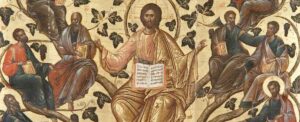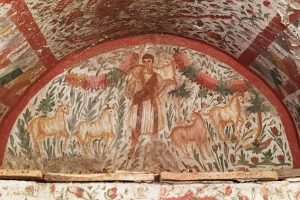Bart Ehrman wrote: “It is true, of course, that the New Testament is abundantly attested in the manuscripts produced through the ages, but most of these manuscripts are many centuries removed from the originals, and none of them perfectly accurate. They all contain mistakes – altogether many thousands of mistakes.”
— in The New Testament: An Historical Introduction To The Early Christian Writings“I’ve heard that the New Testament books were altered by the early Christians to teach things Jesus and his disciples never said. How do we know today’s New Testament is even the same thing the first Christians had?”
Scholars, both Christian and others, agree that the New Testament documents were written between the 50s AD (Paul's letters) and the early 100s. Meanwhile we have vast amounts of material quoted verbatim from these New testament documents in letters and sermons from the late second century, as well as manuscript copies of NT portions from as early as 125 AD.
But the New Testament documents themselves were not written in one place or time. They originate in communities in Syria, Palestine, Asia Minor, and Egypt, written over a spread of at least fifty years. These documents were not gathered into a book called “The New Testament” until the 300s, by which time they had each each been circulating independently for centuries.
More importantly, the vast body of documents which quote the New Testament (in its modern form) originate in locations spread across the entire Roman world, in multiple languages (Syriac, Greek, Latin, etc), and from as early as the second century. In other words, regardless who wrote or edited these documents, the were received in exactly the form now familiar to us, by the mid- to late-100s AD. Any alterations had to have happened before that time.
And yet — the New Testament texts used in second- or third-century Spain, Italy, Greece, Syria, and Egypt actually agree in practically every detail. In fact every single divergence and variation in the 24,000 NT manuscripts is catalogued, and is clearly noted in the standard Greek New Testament text used in any university. Of these variations, all but about a dozen are spelling errors, or a copyist’s accidental substitution of a synonym in a single manuscript. The handful of exceptions (actual meaningful words or sentences that vary in some manuscripts) are clearly pointed out in the footnotes of every English Bible I’ve ever used.
So if there was significant tampering with the text of the NT, then we have to theorize a vast conspiracy: Over a span of at least fifty years, these amazing fraudsters somehow intercepted every single one of the 27 NT books, just after it was written, and edited them in a consistent way. And then, astonishingly, all the communities to whom they were sent somehow failed to notice that these edited documents differed from what Christ’s Apostles and their successors had been teaching them for generations. These detail-obsessed, fanatical believers somehow never noticed a radical change in their community’s faith at the arrival of these new, doctored manuscripts, but instead collected and copied them under the impression they were consistent with the faith they’d been practicing for generations before receiving these new letters.
Bottom line: I’m not arguing that you should believe the New Testament. That’s a separate conversation. But it really strains belief to create a conspiracy theory about secret, Jesus-worshipping text editors with such astonishing effectiveness, thoroughness and skill that through only two dozen letters, they managed to completely change a religion that had already been taught and spread across the whole Roman world for up to a century before these letters even arrived.
We can argue some other time over whether the New Testament writers themselves were reliable or whether their Jesus is worth believing in. But let’s not be distracted by sensationalist conspiracy theories that don’t stand up to the facts






